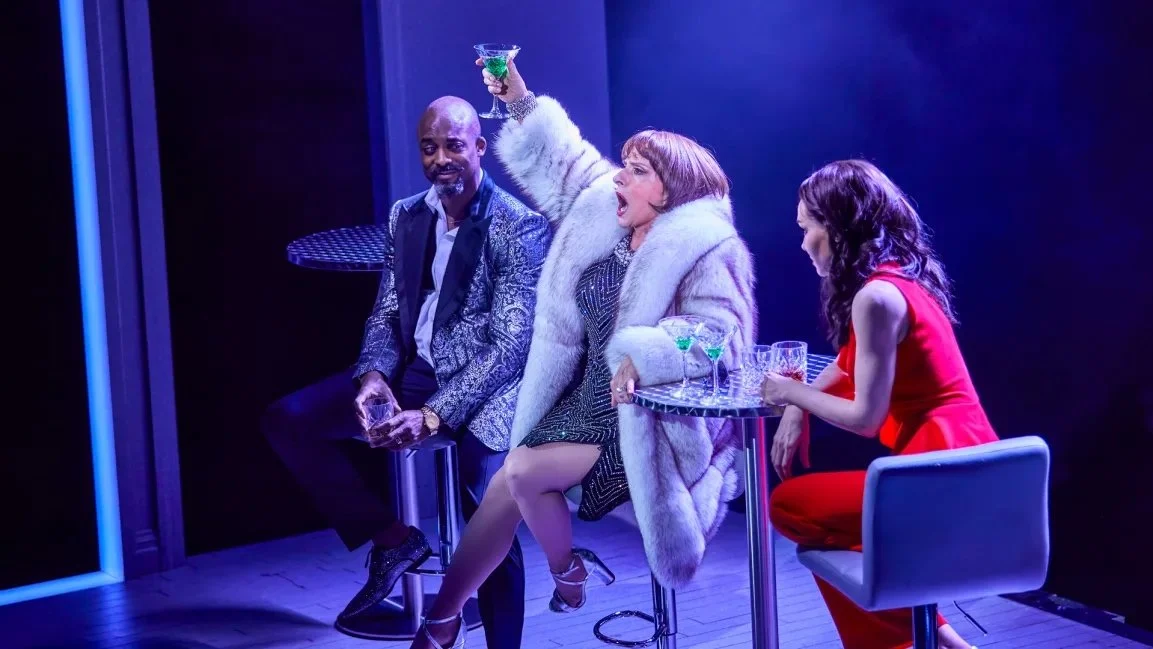Why the media company Madison Wells is rebranding to center ‘badass’ women and boundary pushers
Founder and CEO Gigi Pritzker explains how the pandemic helped her crystallize what was most important to her and the work she’s creating.
Like most people during the destabilizing events of last year, Gigi Pritzker found herself assessing what’s most important in her life—and as founder and CEO of the media company Madison Wells, that assessment eventually translated to a company rebrand.
“For kind of my whole career, my sensibilities, my values, my taste has run towards a certain kind of story,” says Pritzker. “If I look back, there’s always a big underdog piece to what I tend to be attracted to.” Pritzker’s Madison Wells’s production resume includes the Tony Award-winning plays The Inheritance and Hadestown, National Geographic’s Genius series, 21 Bridges, and more. “The pandemic, this period that we’ve all gone through,” she adds, “we all crystallized in some respects what was important to all of us and have really spent time thinking about what are we doing? How are we spending our time? And what’s important to us?”
With the rebrand, Pritzker and her teams across film, TV, live events, podcasts, and more are putting a finer point on that “underdog” element to showcase stories about and by “badass women.”
Earlier this year, Madison Wells acquired the rights to sex educator and researcher Emily Nagoski’s book Come as You Are: The Surprising New Science that Will Transform Your Sex Life. Madison Wells also recently released the Tammy Faye biopic The Eyes of Tammy Faye, director Geeta Malik’s family dramedy India Sweets and Spices, and the company is developing author Ali Benjamin’s bestselling YA novel The Thing About Jellyfish as both a film and stage production.
“It’s really about focusing on women in front of the camera and behind the camera who are not afraid to tell their truth and tell their personal story,” says Rachel Shane, head of film and TV at Madison Wells. “It’s about pushing forward and not letting anyone stop them from that path. And I do believe that that is the definition of badass.”
Both Shane and Pritzker note that Madison Wells is taking a expansive view on inclusivity in that they’re looking at more than gender and race. The company is positioning itself as a repository for boundary pushers across the board with little in the way of boxes to check beyond that.
“For me, both personally and as a professional in this industry, it’s just being attuned and open and aware enough to recognize when [a good story] does come by,” Pritzker says. “Our world is not short of difficult and challenging things to highlight and help. So for me it’s being open to it and being aware of it and wanting to engage with it.”
For example, the little-known yet remarkable story of Daniel Joseph Jenkins, a reverend in Charleston, South Carolina, who established an orphanage in 1891 for Black street kids. Jenkins sought donations of musical instruments from the townsfolk, and with the help of local musicians P.M. “Hatsie” Logan and Francis Eugene Mikell, taught the orphans how to play. With time, the Jenkins Orphanage Band became a training ground for future jazz musicians and an influential force in jazz itself.
“When were brought this story, I immediately said, ‘This is a musical’,” says Jamie Forshaw, executive producer for Madison Wells’s live division. “Hands down, this would be a fantastic visual, sensorial hit. It will spark conversations, and it’s definitely a story that should be heard and one I’m surprised isn’t already known.”
“I think the rebrand for us, specifically for live, is more poignant in the sense that it’s all about voices that aren’t heard and voices that should be heard and need to be heard,” Forshaw continues. “Theater gives a much more compelling, immediate visual response with an audience member. You can really reach the emotional core of someone.”
Madison Wells’s rebrand also taps into Pritzker’s own emotional core. She worked with the women-founded agency Ampersand to help set a new tone for the company with a logo and website refresh. “They really dug deep into the motivation behind what we’re doing and why,” Pritzker says. “It felt like therapy at times, in a good way. As a result, the logo that we came up with—I know it sounds kind of silly [because] it’s just a logo—but it really resonates for me. When we show it to people, they’re like, ‘It’s a little hippie, kind of like you.'”
For Pritzker, Madison Wells’s rebrand feels like an evolution of who she is and what she’s always stood for. “Frankly, it’s a great time to state it,” she says. “It felt like the time to actually say, this is the thing I want to do and who I want us to be.”

